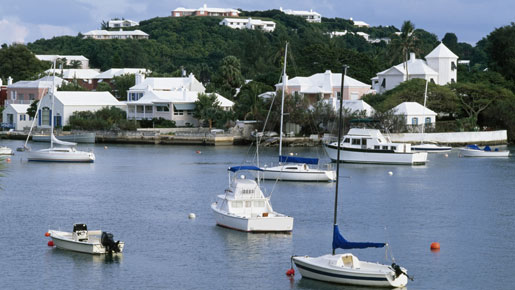
As economic crises unfold around the world, major onshore country jurisdictions are casting a critical eye on the degree and types of regulation that exist in offshore jurisdictions. Often, blanket statements that lump all offshore jurisdictions are being made and ignore the concerted effort that Bermuda has made to be transparent and appropriate in legislating and regulating the financial services industry.
Bermuda has a long-standing tradition of consultative practice and supportive spirit between Government, the Bermuda Monetary Authority and international business when introducing or updating financial services legislation. This system has resulted in official endorsement of the Island’s strong standing in a wide variety of legislative arenas.
One outstanding example of Bermuda’s effectiveness is in preventing Money Laundering and Terrorist Financing. It’s widely acknowledged that a particularly difficult and widespread problem among all countries is the monitoring of money laundering and anti-terrorist financing. The Financial Action Task Force (FATF) works diligently worldwide to review stated criteria regarding a country’s legal and regulatory framework, international cooperation and resource allocation. Moreover, each year, the United States Department of State publishes an International Narcotic Control Strategy (INCSR) Report which encompasses an even more comprehensive range of criteria and also, includes conformance to international standards. The report highlights continuing threats and vulnerabilities posed by money laundering and terrorist financing to US national security and to the stability of the global financial system.
Some of the methodologies used in the study include the continuing use of banks and money service businesses as gateways to the global financial system; bulk cash smuggling; trade-based money laundering and value transfer; legal entities such as offshore financial centers and international business centers; casinos and ‘virtual’ casinos; and new payment methods – sometimes also identified as ‘e-money’.
The review by the State Department includes an assessment of:
• The significance of financial transactions in a country’s financial institutions that involve proceeds of crime;
• Steps taken, or not taken, to address financial crime and money laundering;
• Each jurisdiction’s vulnerability to money laundering;
• The conformance of its law and policies to international standards;
• The effectiveness with which the government has acted; and
• The government’s will to take needed actions.
In 2008 and again in 2009, the INCSR ranked Bermuda in the lowest risk category for money laundering and terrorist financing, a significant achievement and remarkable distinction from other jurisdictions, both onshore and offshore.
Because of the complex nature of money laundering and the difficulty in differentiating between proceeds from narcotics trafficking and the proceeds of other serious crime, the INCSR study includes countries and jurisdictions whose financial institutions engage in transactions involving significant amounts of proceeds from all serious crime. It ranks countries in one of three categories: ‘Jurisdictions of Primary Concern’, which means those countries that are identified under INCSR requirements, as ‘major money laundering countries’. The second category is ‘Jurisdictions of Primary Concern’ and the primary difference from Jurisdictions of Primary Concern is the significance of the amount of proceeds laundered. The classification, ‘Other Jurisdictions Monitored’ indicates that actual money laundering is not acute as in the other two categories. However, while not posing an immediate concern, these countries are continually monitored as virtually any jurisdiction of any size can develop into a significant money laundering centre.
Cheryl Packwood, CEO of the Bermuda International Business Association, said that the key to Bermuda’s success has been its constant and evolving approach to preventing money laundering and the Island’s long history of ‘knowing your client’. She commented that Bermuda closely monitors these issues and evolved regulation and legislation to ensure that Bermuda can mitigate the risks of money laundering.
“Bermuda focused on money laundering long before it was deemed critical in the war on terror and has taken aggressive steps to ensure that our jurisdiction is a place that knows its customers well. Indeed, Bermuda instituted ‘know your enemy’ legislation in the late 1930s and the business community and government have worked together consistently to ensure that the legislation and regulation of this area has been amended and updated to world-class standards.” Packwood continued, “To pass INCSR muster and have this incredible difference from other offshore and onshore business centers, given our standing in the international business world, is remarkable.”

